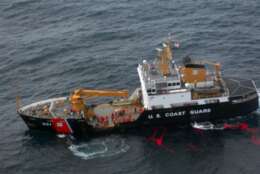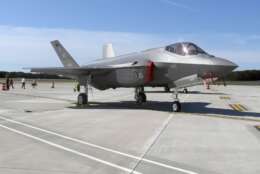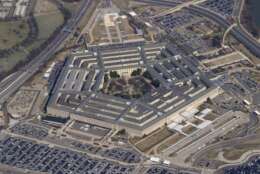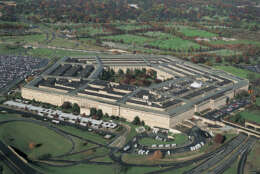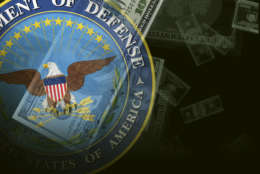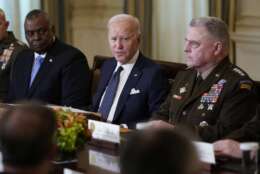Defense
-
The Defense Information Systems Agency is evaluating operational assessment, operational tests and the user’s experience as part of whether it should move its zero trust pilot into production.
November 10, 2022 -
The Space Hour talked to Vishnu Reddy, Associate Professor and Co-Leader of the university's Space Domain Awareness Lab.
November 09, 2022 -
In today's Federal Newscast: GAO warns the Coast Guard that it's way behind improving safety aboard older commercial fishing vessels. DoD employees who drive electric vehicles will have an easier time charging their vehicles in 2023. And veteran homelessness dropped 11% in 2022, according to the VA.
November 07, 2022 -
No one knows what the F-35 aircraft can do in a war, say, over Taiwan. One thing we do know is the fifth-generation fighter, now something like 20 years in development, has economic significance. Something like $72 billion F-35 dollars is spread throughout the U.S. economy every year. For more details, the Federal Drive with Tom Temin spoke with Kevin Michaels, the managing director of AeroDymanic Advisory.
November 04, 2022 -
U.S. Army officials say investigators have launched a broad review of at least 1,900 National Guard and Reserve soldiers who were swept up in a recruiting bonus scandal up to a decade ago and may have been wrongly blamed and punished.
November 03, 2022 -
In today's Federal Newscast: Take me to your leader; the Space Force has a new one. A union for federal employees suggests some agencies might be sort of suppressing the vote. And DoD's Zero Trust strategy will soon go public.
November 03, 2022 -
No one particularly likes Defense Department's PPBE process. It’s rigid, inflexible, and very slow. But it's been encoded into the DNA of the Defense bureaucracy for more than 60 years. Over the next year, two separate groups of experts will try to figure out how to fix the system.
November 03, 2022 -
The U.S. Military Academy at West Point and the Office of the Assistant Secretary of the Army for Installations, Energy and Environment established a new entity called the Sustainable Infrastructure, Resilience and Climate Consortium.
November 02, 2022 -
The National Defense Strategy and the DoD Strategic Management Plan emphasized rivalry with China and the need to protect space and cyber assets.
November 01, 2022 -
The Defense Department is working on new initiatives to reduce the long-term ownership costs of its major platforms. While those systems are expensive up-front, sustainment expenses make up about 70% of the average weapons system’s total lifecycle cost.
November 01, 2022 -
The Army says SBOMs are "going to happen" and is now asking for feedback on how to use them as part of the acquisition process.
October 31, 2022 -
Defense Secretary Lloyd Austin gave a new task to the Defense Innovation Board to establish a national defense science and technology strategy.
October 31, 2022 -
The Defense Department's Cyber Crime Center, known as DC3, has a new executive director, Jude Sunderbruch. He joined the Federal Drive with what's new at the DC3 and what he plans for this crucial office.
October 28, 2022 -
The Court of Federal Claims ruled Thursday that DoD can move ahead with its Global Household Goods contract, rejecting protest lawsuits by two separate losing bidders.
October 27, 2022 -
A new U.S. defense strategy says China remains the greatest security challenge for the United States despite Russia’s ongoing war in Ukraine. It says the threat from Beijing will determine how the U.S. military is equipped and shaped for a future. Pentagon notes a new reality, where the security environment has deteriorated, and the U.S. may face a situation where it has to deter two nuclear-armed adversaries, China and Russia, simultaneously. The 80-page, unclassified report was released on Thursday.
October 27, 2022



